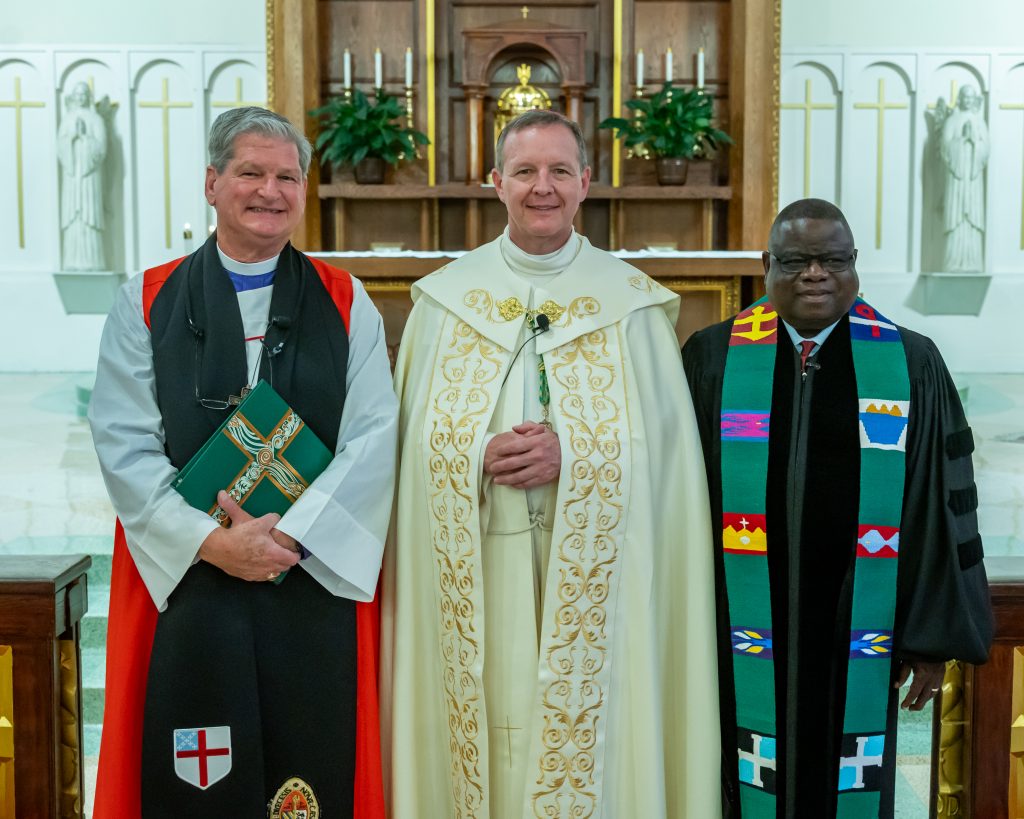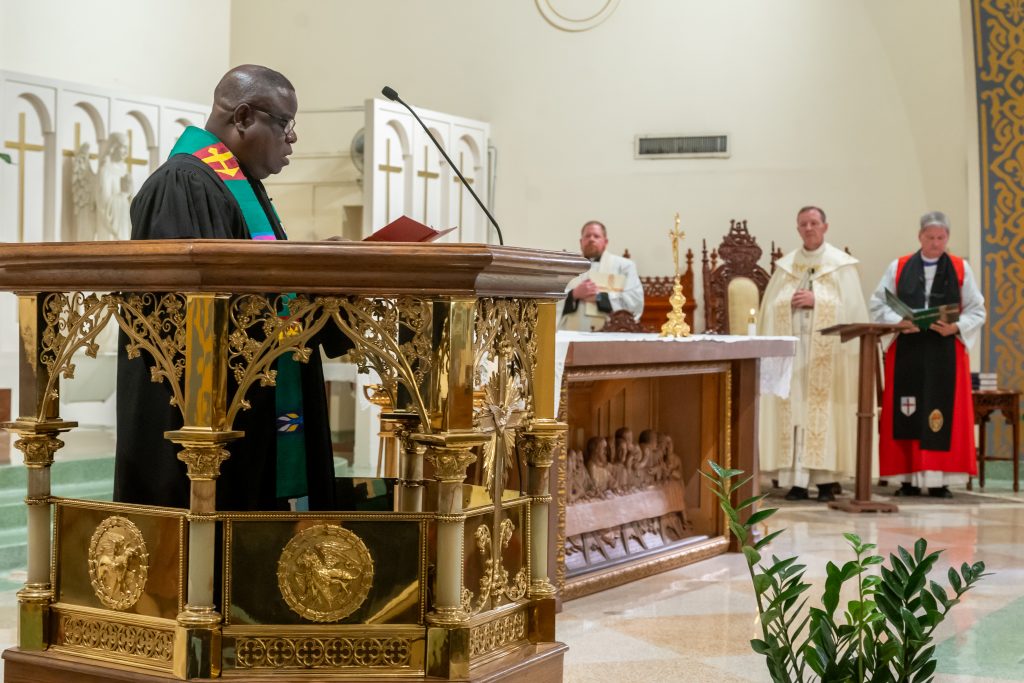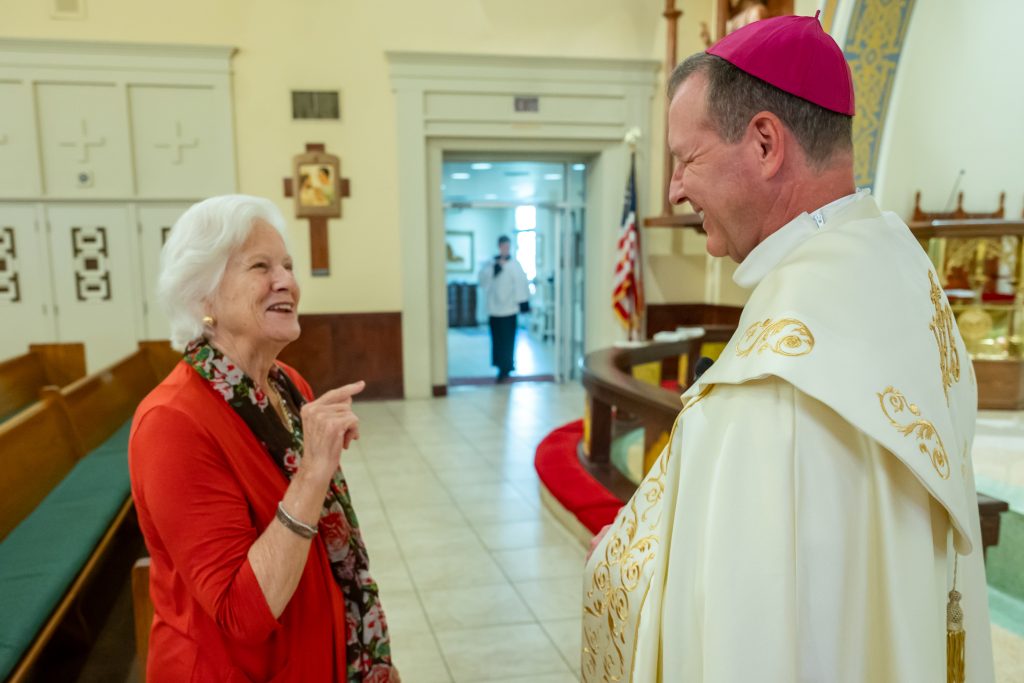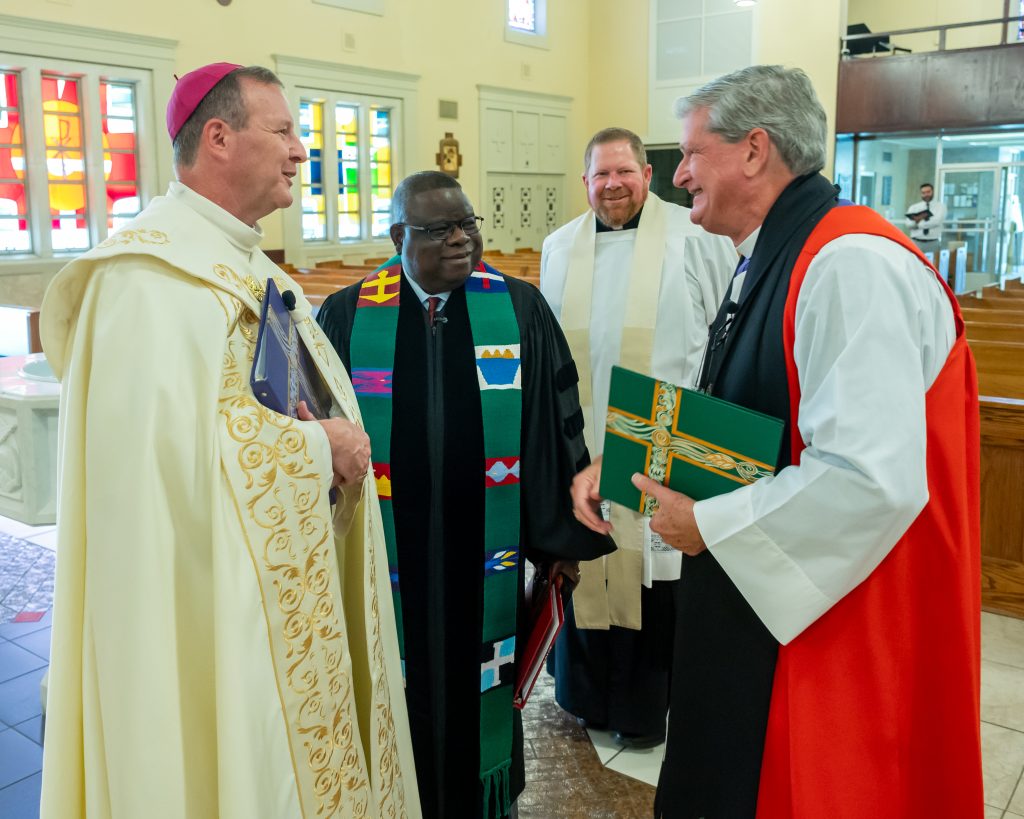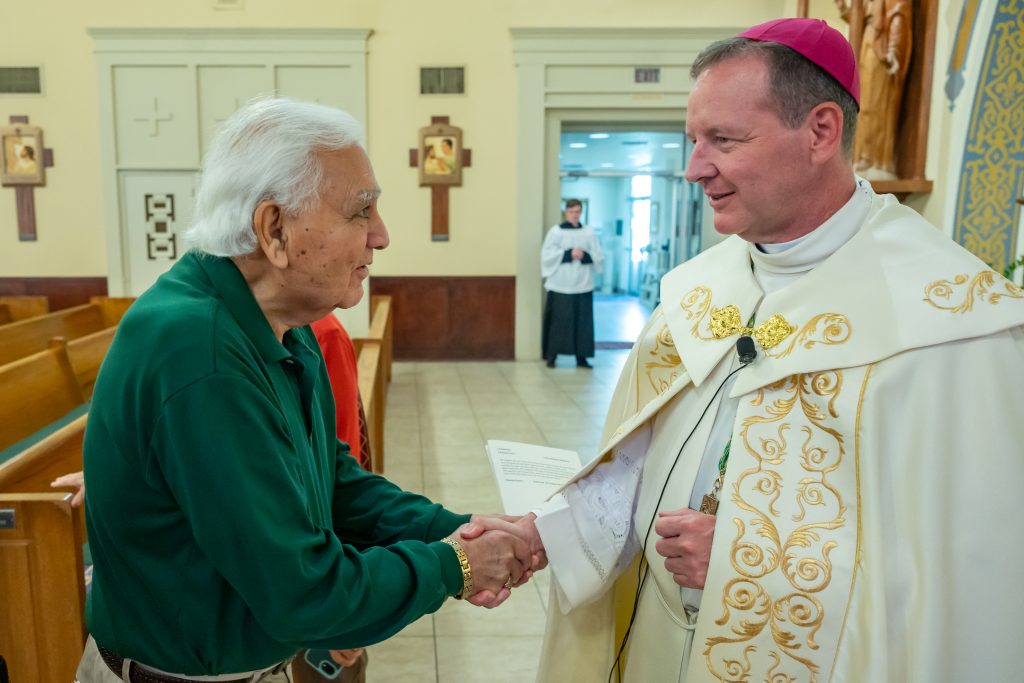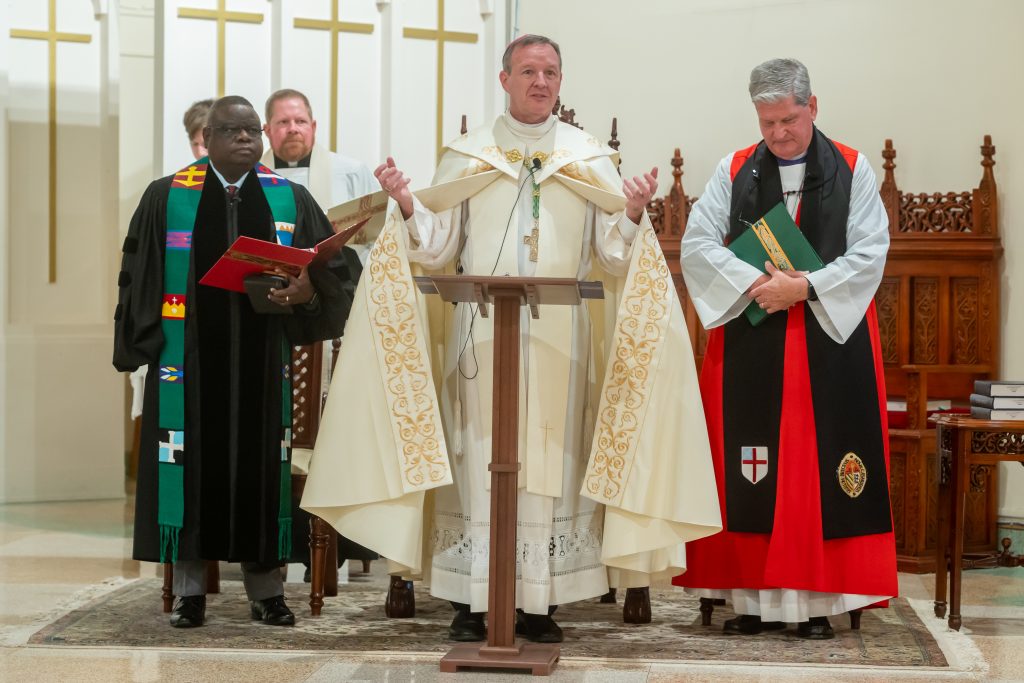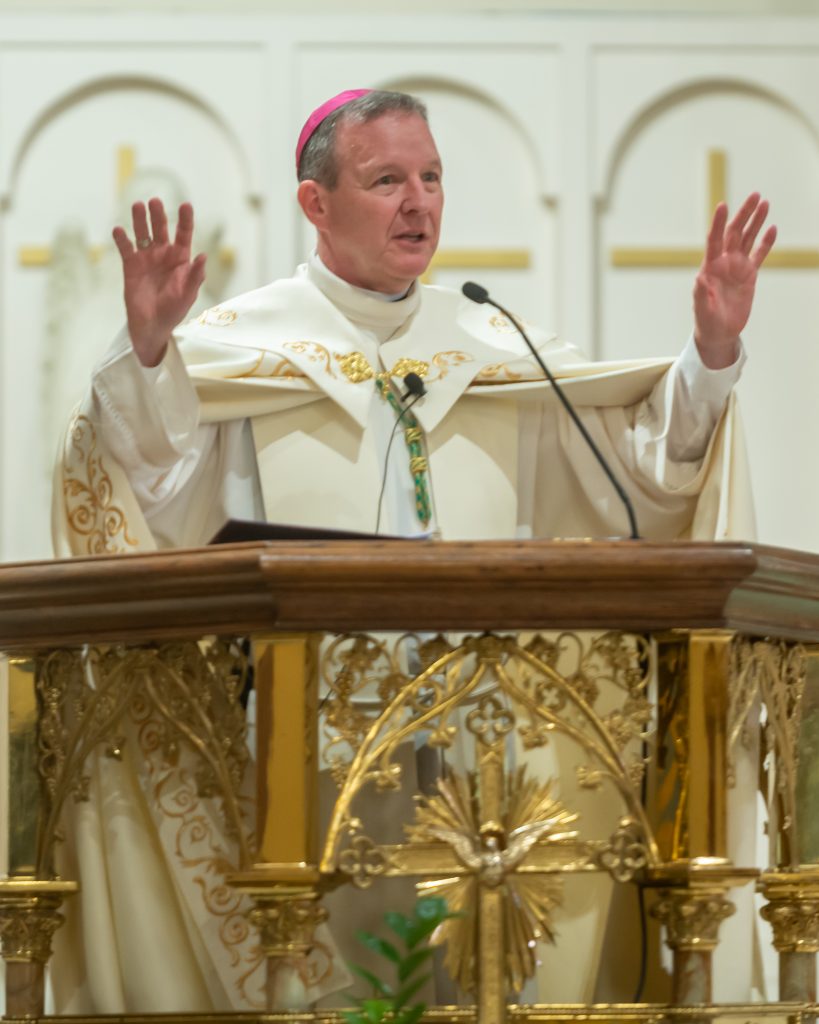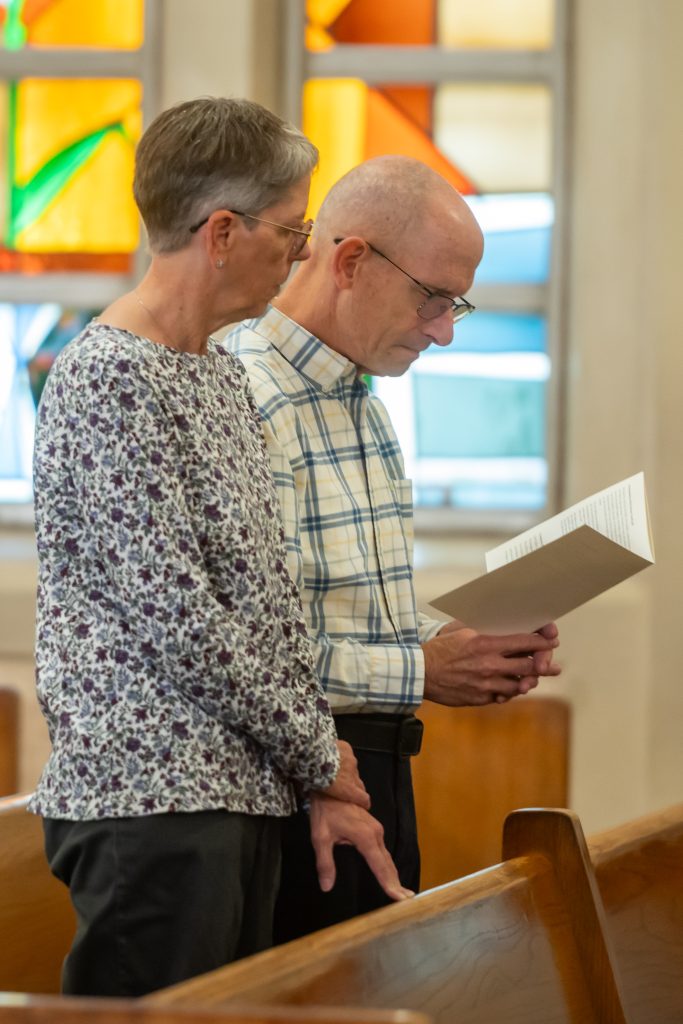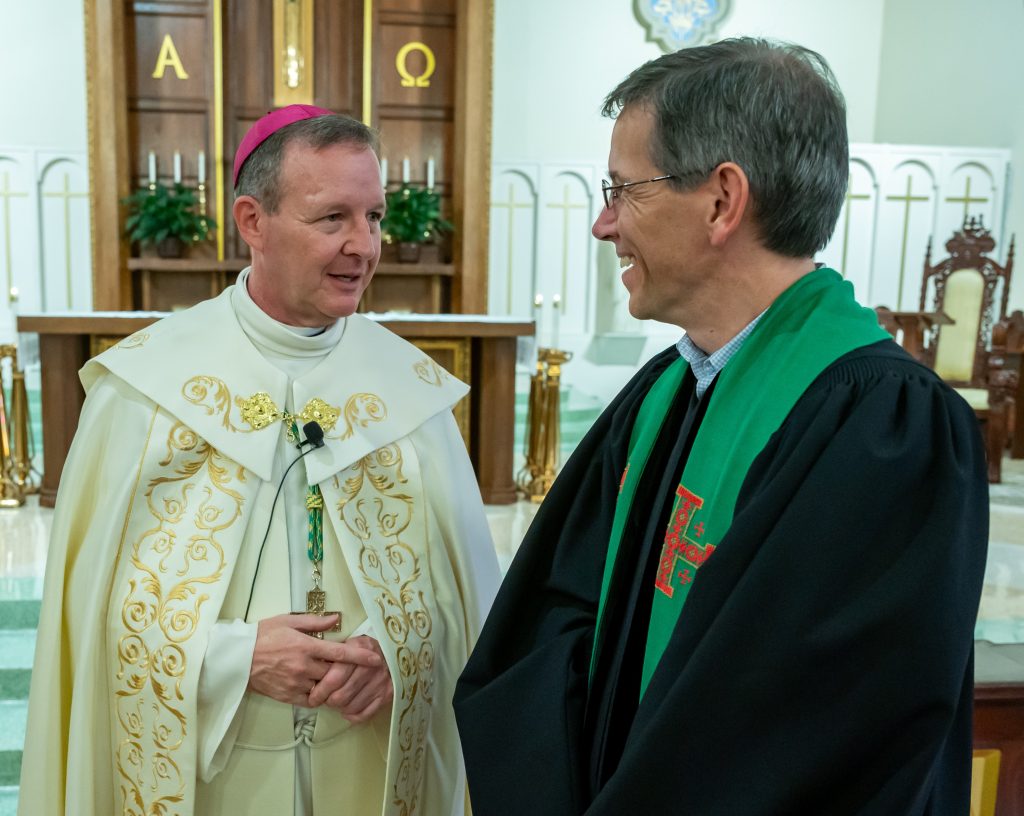By Anthony Richards
The Nicene Creed has been one of the most influential texts for Christians for centuries. The Diocese of St. Augustine marked its 1,700th anniversary with a special celebration as part of the Jubilee Year of Hope.
“It’s remarkable to think we’ve been praying these same words for 1,700 years, nearly unchanged from when they were first written,” said Bishop Erik Pohlmeier. “They truly capture the heart of our faith.”
The commemoration took place Oct. 25 at Assumption Catholic Church in Jacksonville. Bishop Pohlmeier was joined by Right Rev. William “Chip” Stokes, assisting bishop of the Episcopal Diocese of Florida, and Rev. Dr. Simon Osunlana, superintendent of the North East District of the Florida Conference of the United Methodist Church, to recognize the Nicene Creed and its enduring influence.
The Creed remains one of the clearest expressions of shared belief among Christians. Many denominations profess and recite it as part of their worship.
“It was beautiful to come together ecumenically and pray with what is truly foundational to our beliefs,” Bishop Pohlmeier said.
The three faith leaders joined in prayer with those gathered and reflected on the meaning of the words, emphasizing the value of moments when different Christian communities unite in faith.
Although the Nicene Creed has been recited for nearly two millennia, its formation in A.D. 325 was not without controversy, Bishop Pohlmeier explained. The Council of Nicaea addressed growing disputes about what are now seen as core Christian truths — especially the identity of Jesus Christ.
“At the heart of the debate was the question, ‘Is he really a man, and is he really God?’ There were people arguing on both sides,” the bishop said. “So, they created a new term to express that he is both fully God and fully man. It’s an extraordinary legacy.”
Bishop Pohlmeier said continuing to host ecumenical gatherings and creating opportunities for leaders of various denominations to share in prayer and dialogue is vital.
“Anyone involved in ecumenism would say Jesus sets the tone for this because he prayed on the night of the Last Supper, ‘that they may be one,’” he said. “Our work in ecumenism should celebrate our shared heritage as people of faith, but we also can’t shy away from wrestling with our differences. We can’t just accept that we have all these denominations — Jesus calls us to be one.”
Photos by Fran Ruchalski
